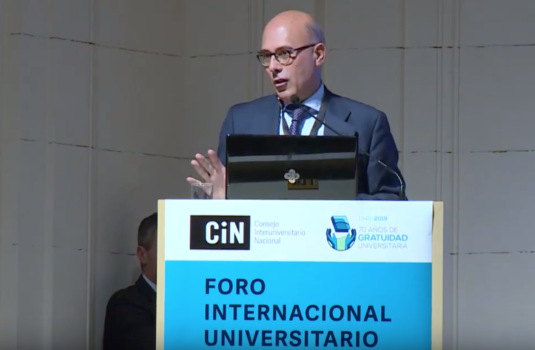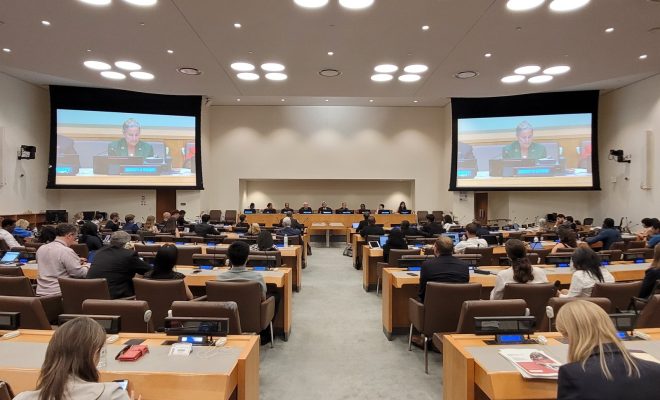Investments and defense of democracy mark the first day of the CRES+5 Conference

The largest higher education event in Latin America and the Caribbean (CRES+5) closed its first day with two important milestones for the expansion and strengthening of the sector. The Brazilian government announced an investment of more than 120 million reais in two programmes to be developed with countries in the region. As a background theme, but no less important, the conference marks the return of Brazil as a protagonist in the international dialogue on the importance of higher education as an instrument to reduce regional inequalities, create fairer societies and strengthen democracy.
Brazil’s return to prominence in debates on the future of higher education in Latin America and the Caribbean was a recurring theme in speeches, meetings, and the opening of the event today in Brasilia. The launch of two new programmes to promote higher education and integration with the other countries participating in the conference translated this new moment of the Brazilian government into action.
The investments announced by the Minister of Education, Camilo Santana, amount to 102 million reais over eight years for the Montevideo Group (AUGM), which brings together 41 universities from Brazil, Argentina, Bolivia, Chile, Uruguay and Paraguay to develop programmes of common interest. And through the Mova La América programme, another R$20 million will be invested in 500 master’s and doctoral scholarships for students who want to do internships in Brazilian federal institutions. Santana stressed that Brazilian investment in higher education is an obligation and not just an option, and that the greatest progress in the sector in the last two decades began under the presidency of Luiz Inácio Lula da Silva, who does not have a university degree.
Despite assuming a natural protagonism in relations, the Brazilian government affirms that the leadership of actions is a responsibility shared among all leaders, local and regional. In the assessment of CAPES’ Director of International Relations, Rui Oppermann, Brazil’s return to the international scene is especially important in relation to Latin America and the Caribbean, neighbouring countries and preferential partners in many aspects, such as culture, history, economy and education. “We have many things in common and this conference aims precisely to put into perspective how Brazil returns to the Latin American community, and how we can resume all the common development projects that we have always had with them, and historically, they have even been waiting for us to make proposals to continue this partnership.”
Different issues, one certainty
In the afternoon, Conference members met in Symposia to discuss six thematic areas of education: higher education as part of the education system, cultural diversity and interculturality, internationalisation and regional integration, education in the face of social challenges, scientific and technological research, and the strategic role of higher education in the sustainable development of the Americas.
Despite the different themes, the participants in the working groups are certain that higher education is the main way to combat denialism, local and regional inequalities, a tool to promote sustainable development and capable of preventing a climate catastrophe.
The Director of UNESCO IESALC, Francesc Pedró, shared his assessment of the day: “It is truly exciting to confirm that after the first day of the conference, we have been able to confirm a shared will: to forge consensus on the priorities for the next five years, which will allow progress towards the common goal of quality, inclusive and equitable higher education for all people”.
On Thursday, the conference resumes with a lecture by Professor Nilma Lino Gomes, former Minister for Women, Racial Equality and Human Rights, followed by symposia by eight other thematic commissions. A panel discussion with the coordinators of the symposia on the second day of Cres+5 will close the day’s programme.
RELATED ITEMS








